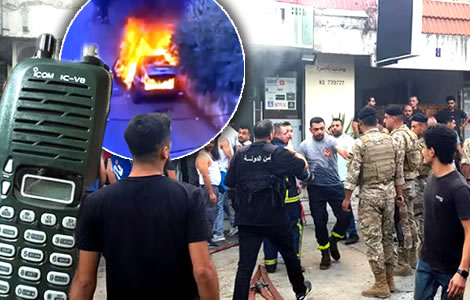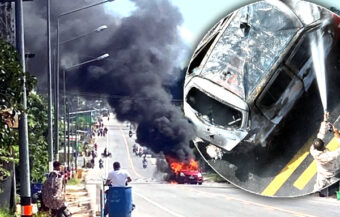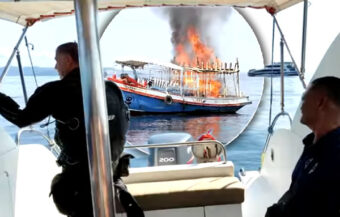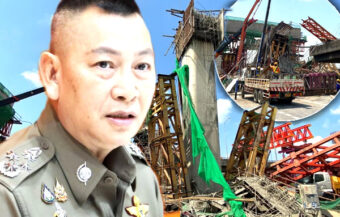Hezbollah hit by deadly blasts for a second day as walkie-talkies explode across Lebanon, killing 9 and wounding 300. Israel remains silent amid rising tensions, with Hezbollah blaming its intelligence for attacks, as fear spreads across the region.
The Iranian-backed terrorist group Hezbollah has suffered another calamity. Following Tuesday’s simultaneous attack, which led thousands of pagers to explode, on Wednesday there was a similar incident linked with walkie-talkies. The two attacks, which have led to 21 deaths and over 3,000 injuries, have inflamed tensions not only in Lebanon but across the region. Israel has remained muted on the developments, but there is little doubt that this is the work of its intelligence agencies.

A series of deadly explosions rocked Lebanon for the second consecutive day on Wednesday. It came as handheld communication devices linked to Hezbollah detonated across the country.
At least nine people were killed and over 300 injured in the fresh blasts. This brings the total death toll to 21, with more than 3,000 wounded since the explosions began on Tuesday.
The chaos started when thousands of pagers carried by members of Hezbollah exploded simultaneously on Tuesday, killing 12 people and injuring nearly 2,800. Hezbollah, the Iran-backed Lebanese militant group and political party, has blamed Israel for the coordinated detonations, though Israel has not commented on the accusations.
Hezbollah has since vowed revenge, escalating fears of a broader conflict in the already volatile region.
Second Day of Blasts Adds to the Carnage
On Wednesday, the explosions continued, this time involving handheld walkie-talkies and other wireless communication devices. Reports indicated that these blasts occurred across Beirut, Tyre, Baalbek, and the Bekaa Valley, all areas with significant Hezbollah presence.
One of the explosions took place during a funeral in Beirut’s southern suburbs, where mourners had gathered to pay respects to those killed in Tuesday’s blasts. The explosion sent panicked mourners fleeing the scene.
A Financial Times reporter at the funeral described the atmosphere as tense even before the explosion, with mourners holding up pictures of slain relatives, including a child, two Hezbollah members, and a health worker.
The crowd was thrown into chaos when a loud boom echoed over the procession. Ambulances rushed to the scene as people screamed in terror, and a soldier confirmed that “two devices had exploded.”
Lebanon’s state news agency, NNA, reported further explosions in scattered villages and towns in southern Lebanon. In addition to the walkie-talkies, there were reports of rooftop solar energy panels exploding.
These devices, like the pagers, are believed to have been tampered with or remotely triggered. Meanwhile, Israeli surveillance drones were reportedly observed flying over southern Lebanon, further heightening tensions.
Mounting Casualties and Worsening Crisis
Lebanon’s Health Ministry confirmed that nine people were killed and over 300 injured in Wednesday’s explosions. Combined with Tuesday’s blasts, the death toll now stands at 21, including at least two children.
More than 3,000 people have been injured, with nearly 300 of them in critical condition. Hospitals across Lebanon have been overwhelmed, and emergency services are struggling to cope with the rising number of casualties.
Red Sea Terror as Houthi militants capture and fire a Greek oil tanker. Fears of a widening War in the region
United Nations warns Terrorism in particular Islamic Terrorism is again on the rise in the World
Images circulating on social media have shown the devastation, with scenes of burned-out cars and motorbikes, apartment buildings engulfed in flames, and bloodied victims being rushed to hospitals. The blasts have left significant damage to infrastructure and caused widespread panic among the population.
Escalating Regional Tensions
The timing of the explosions comes amid rising hostilities between Hezbollah and Israel. It followed Hamas’s attack on Israel on October 7.
Hezbollah and Israel have exchanged fire along the border in recent weeks. Certainly, it has raised fears of a wider war in the region. Just hours after Tuesday’s pager explosions, Hezbollah launched rockets at Israeli artillery positions across the border. It marked the first retaliatory strike since the detonations.
Hezbollah’s accusation that Israel was behind the explosions has not been substantiated, and Israeli officials have remained silent on the matter. Nevertheless, the explosions have only intensified the already fraught relationship between the two sides.
With both Hezbollah and Israel engaged in cross-border fire, the risk of further escalation remains high.
International Response and Calls for Ceasefire
International efforts to de-escalate tensions between Hezbollah and Israel have gained urgency following the explosions.
Speaking from Cairo on Wednesday, U.S. Secretary of State Antony Blinken emphasised the importance of reaching a ceasefire agreement in Gaza, which he said could also help calm the situation along the Israel-Lebanon border.
Blinken acknowledged that progress toward such a deal had been slow, with frequent setbacks. “Often, just as we think we are making progress, an event occurs that threatens to slow it, stop it, or derail it,” he said, alluding to the explosions in Lebanon.
A Nation on Edge
Lebanon, already reeling from an economic crisis and ongoing political instability, now faces the added pressure of dealing with the fallout from the explosions.
The detonation of Hezbollah’s communication devices has caused widespread fear, with many Lebanese citizens unsure of what might happen next.
The full impact of these explosions, both in terms of human loss and regional geopolitics, is yet to be fully understood. As Hezbollah vows retaliation and the death toll continues to rise, Lebanon remains on edge. Most fear further violence and an even greater escalation of the conflict with Israel.
Join the Thai News forum, follow Thai Examiner on Facebook here
Receive all our stories as they come out on Telegram here
Follow Thai Examiner here
Further reading:
Thai hostages held by Hamas used to leverage influence over Israel as it prepares to invade Gaza
Israel to pay ฿35k per month to wives of Thai workers killed in Hamas raid and child support
Rogue Israeli tourist is taken into custody by Immigration Bureau police prior to deportation
On the run Israeli tourist tracked down to Ko Samui, surrenders to authorities, taken to hospital
Thailand votes on the right side of history in UN deploring Russian military action in Ukraine


















